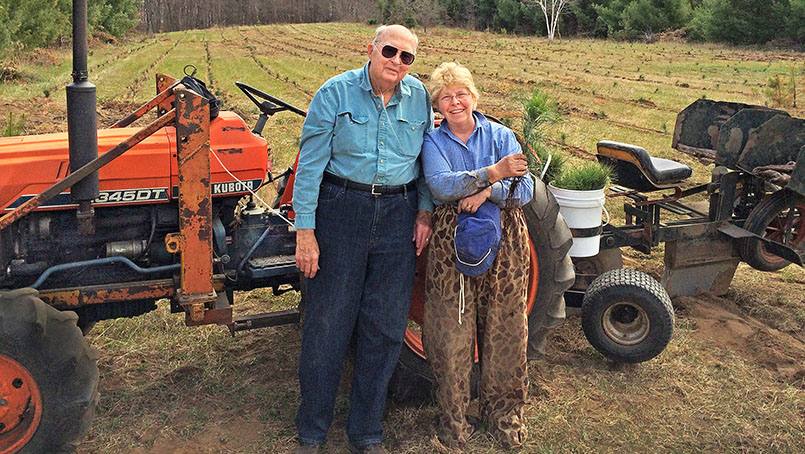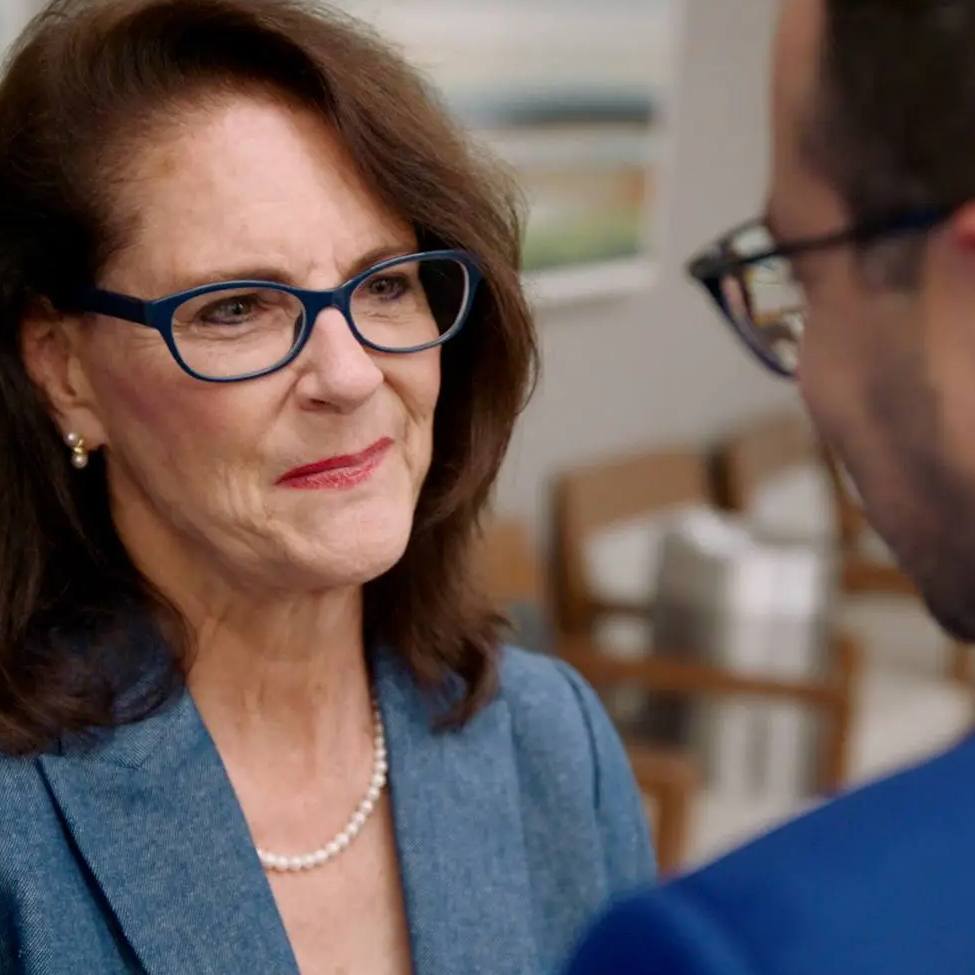-
Sharing Mayo Clinic: Palliative Care and Farmer’s Outdoor Passion
 Roger Conklin has a passion for being outdoors. A tree farmer for more than 50 years, Roger looks forward to the changing seasons and experiencing the cycle of planting, growing and harvesting.
Roger Conklin has a passion for being outdoors. A tree farmer for more than 50 years, Roger looks forward to the changing seasons and experiencing the cycle of planting, growing and harvesting.
Over the last two decades, however, health concerns have made his outdoor activities more challenging. During that time, Roger has undergone hip and knee replacement, been diagnosed with prostate cancer, and faced additional health issues related to his heart and lungs.
Medical care from his team at Mayo Clinic Health System, along with support from a large circle of family and friends, have seen him through each of these obstacles. And in October 2014, a new feature was added to the mix when Mayo Clinic Health System Palliative and Supportive Care Service became part of Roger’s care team, too.
Palliative care is specialized medical care for people with a serious illness. It focuses on providing relief from symptoms and stress. The mission of the palliative care team is to support patients and their families, so patients are able to live as well as possible. It was just the right fit for Roger's needs.
Planning and setting goals
Roger started planting trees in Minnesota in 1956 and expanded into Wisconsin with the help of his family and his wife, Sally. Today, Conklin Tree Farms is operated by the couple’s granddaughter, and Roger continues to enjoy being part of the family business. He looks forward to getting on his tractor to inspect the growth of next season’s Christmas trees and tending to his legacy forest. He and Sally recently planted more than 4,500 trees to increase diversity on the 100 acres where they live.
“It is a challenge to balance risk and my family’s urge for supervision with ongoing activities outside, including tractor work, which I still want to keep doing,” Roger says. “I have been able to recover well from health setbacks, and palliative care has been very helpful in goal setting and discussing options, so I can continue to be involved in family activities and tree farming.”
“I have been able to recover well from health setbacks, and palliative care has been very helpful in goal setting and discussing options.” - Roger Conklin
Before they began using the palliative care service, the Conklins had an initial visit with the team to discuss Roger’s medical history. They were then offered temporary medical support during in-home visits. Both Roger and Sally agreed to and welcomed those visits. Charlene Anderson, a palliative care nurse practitioner, has been coming to see Roger and his family for more than a year.
“By doing regular follow-up palliative care visits, we get to know the patient and family, which helps when setting goals for future care,” she says.
Working through questions and concerns
Sally is the primary caregiver for Roger, as well as for her 94-year old mother. She looks forward to each visit with Anderson.
“I sometimes get overwhelmed with keeping track of appointments, medications and staying on top of everything. When Charlene comes to our home, we confide in each other with all the daily challenges,” Sally says. “It is comforting for me to know that both Roger and I can ask questions and be reassured that he is getting the care he needs.”
During their monthly visits, Anderson checks to see how well Roger’s medications are working. She provides guidance on how to manage Roger’s shortness of breath and pain. They also explore what is important to Roger and how his health care choices fit into his daily life.
“During one of ours visits, we talked about one of Roger’s dear friends who passed away. It was a time to reflect on what is important to him and his family,” Anderson says. “I offered listening support, and we talked about Roger’s goals and his enjoyment of driving his tractor for as long as he is able, even if that includes some risks.”
Caring for a range of needs
The palliative care team helps patients like Roger as they transition into another phase of life that may be difficult to enter. But it is important to have a plan and support for dealing with serious medical illnesses.
“I am honored that I can visit with patients in their home to talk to them about their wishes before they are in a critical situation where decisions need to be made quickly and emotions can cloud decision-making,”Anderson says.
In community-based palliative care, Mayo Clinic Health System can help provide care for the complex physical, emotional, social and spiritual needs that may accompany illness and treatment. The palliative care goes at a pace set by the patient and family caregivers, so they can cherish spending time together for as long as possible.
HELPFUL LINKS
- Learn more about palliative care.
- Learn about the Palliative and Supportive Care Service
- Connect with others talking about palliative care and living with advanced disease on Mayo Clinic Connect.
- Explore Mayo Clinic Health System.
- Request an appointment.







